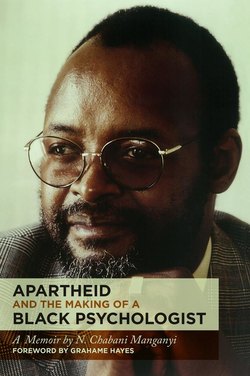Читать книгу Apartheid and the Making of a Black Psychologist - N. Chabani Manganyi - Страница 8
На сайте Литреса книга снята с продажи.
ОглавлениеForeword
C habani Manganyi is a writer of great prominence and, within particular academic circles, highly considered and revered as an elder statesman of academic psychology in South Africa. In his quiet and unassuming way, he has produced an impressive body of work since his first publications in the early 1970s. His early work tended to focus on the experience of being black in apartheid South Africa, and his highly influential 1973 publication Being-Black-in-the-World caught the attention of a nascent anti-apartheid and critical psychology readership. However, it seems that his style of writing is too discursive, literary, and urbane for it easily to have found a place in the rather restrictive discourses of much academic psychology.
During the early years of his work as a practising psychologist Manganyi knew what it meant to put psychology to work in the service of ordinary black South Africans who were oppressed and exploited by a racist and unyielding government. His quest in these early writings to liberate black subjectivity could well be taken up by the proponents of the de-colonisation project in contemporary South African affairs and institutions of higher learning.
Manganyi’s thinking and research has always kept up with the times, and in the 1990s and early 2000s he published important work on political violence and the vicissitudes of the transition to democracy. Besides his contribution to the life of ideas he has also unselfishly given his expertise and wisdom to public institutions in South Africa. Since 1994 he has held highly prestigious appointments in educational and academic spheres: as director general of the national Department of Education (under Minister Sibusiso Bhengu), as vice chancellor of the University of the North, as vice chancellor (1999–2003) and then as vice principal (2003–2006) of the University of Pretoria, and as chairperson of the Council on Higher Education (CHE).
Manganyi’s intellectual pursuits have not been limited to the narrow confines of psychology. He has written three biographies, the first published in 1983 was on Es’kia Mphahlele, the novelist and literary theorist, which was followed in 1994 with a biography of the painter Gerard Sekoto who spent most of his adult years in exile in Paris, and most recently (2012) on artist Dumile Feni (1939–1991). Those on Sekoto and Feni are significant works that have contributed to the recovery of two major South African artists, whose exiled status could easily have resulted in a lack of recognition of their work.
Manganyi has now turned his craft of biography writing on himself, with the publication of this memoir, Apartheid and the Making of a Black Psychologist. This text is more than an autobiography of a black psychologist, because Manganyi’s work and writing has not only been of a psychological nature. His memoir is also a story of apartheid in its ‘glory years’, in the period of its decline and demise, and of the last 20 years of democracy. His memoir offers us a view of a man who has throughout his life pursued an independence of thought, and who has had a profound respect and love for the life of the mind.
Since the early 1990s the South African literary scene has witnessed an outpouring of auto/biographical writing, mostly from, or on, political activists. Fewer have come from the pens of intellectuals, so this memoir is particularly welcome as both a history of ideas and an account of a scholar’s struggle against injustice and oppression.
Grahame Hayes
March 2016
